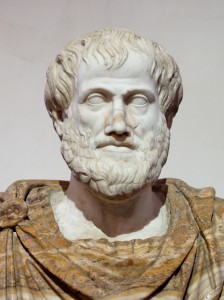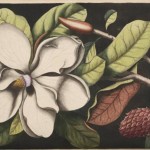 In my last post for Good Letters, I took minor issue with a point my friend and mentor Gregory Wolfe made about the relative prominence of Christian public intellectuals around the middle of the last century.
In my last post for Good Letters, I took minor issue with a point my friend and mentor Gregory Wolfe made about the relative prominence of Christian public intellectuals around the middle of the last century.
Wolfe named, as examples of such prominence, Jacques Maritain, Etienne Gilson, Allen Tate, T.S. Eliot, Reinhold Niebuhr, and Paul Tillich. It is, by any account, a damn impressive list of intellectual heavy-hitters. But I claimed that Wolfe’s nostalgia-tinged look at the days of past glory might be obscuring the way in which those same figures bear responsibility for the fading of Christian—or any other religious— voices from the American public sphere.
In a comment to that post, Mr. Wolfe noted that I’d misread his main argument and that, “The point I was making was not nostalgic, but factual. It was a statement about the way religious public intellectuals of the mid-20th century moved freely within (and were welcomed into) the public square.”
Wolfe is right about that. It was a mistake for me to use the word “nostalgia” or to suggest that Wolfe’s argument had anything to do with pining for bygone days. Anyway, that’s not Gregory Wolfe’s style. Wolfe is a conservative of sorts, but in the very best meaning of the term. He seeks proper balance between tradition and ‘the new.’
I doubly regret using the word “nostalgia” since it obscured my own main argument, which is that Eliot and the New Critics were (unintentionally) agents of their own demise. That’s to say, T.S. Eliot (and many of the later New Critics, but let’s focus on Eliot) crafted a set of arguments that lead necessarily to cultural irrelevance and are, moreover, unchristian (!).
Let’s look at Eliot’s famous essay “Tradition and the Individual Talent” to see what I mean. Eliot begins that essay with a pretty reasonable argument. The gist is that poets “must be quite aware of the obvious fact that art never improves, but that the material of art is never quite the same. He must be aware that the mind of Europe—the mind of his own country—a mind which he learns in time to be much more important than his own private mind—is a mind which changes, and that this change is a development which abandons nothing en route, which does not superannuate either Shakespeare, or Homer, or the rock drawing of the Magdalenian draughtsmen.”
Eurocentrism aside, the essence of Eliot’s sentiment is sound. But here’s where things get weird. Eliot goes on to argue that the poet, in creating new work that is in dialogue with tradition, must not only come to choose the public “mind” over his or her own private mind but transmute personal emotions into non-personal, artistic sorts of emotions. These artful emotions transcend the individual while, at the same time, remaining like “the ordinary ones and, in working them up into poetry, [the poet expresses] feelings which are not in actual emotions at all.”
Eliot senses that he’s in vague territory here and admits, a few sentences down, that it is probably time “to halt at the frontier of metaphysics or mysticism.” But he doesn’t halt before quoting—as the epigraph to Section III of the essay—a line from Aristotle: “ho de nous isôs theioteron ti kai apathes estin,” which we can translate as “Mind is perhaps something more divine and unaffected (apathes).”
Eliot’s use of the Aristotle quote from De Anima is, in fact, terribly out of context and misleading in about five different ways. But that I’m willing to overlook. Productive mis-readings are, after all, part of the fun of writing.
What’s harder to overlook is that Eliot is quoting Aristotle at his most pagan. Even that is not necessarily the worst thing in the world. Some of my best friends are pagans.
But Eliot was not a pagan. He was a Christian. And Christianity, for all its crimes, is an incarnational religion. Indeed, without the incarnation there’s not much point to being a Christian.
The idea that Eliot snatches from Aristotle is a profoundly non-incarnational idea. It is the idea that Mind in its true essence (the Mind of God, as it were, or we could even just say God) has nothing to do whatsoever with creation.
So what Eliot is saying is that poetry, at its deepest root, is out there twisting in the rarified air of Aristotle’s Nous—self-reflecting, self-involved, untouched by the realm of matter and safe from all possible determinations. That’s the implication if we take section III of Eliot’s essay seriously. (Mr. Wolfe would call this, I think, an error of apophatic over kataphatic thinking. And I would agree.)
That’s why (in my earlier Good Letters post) I quoted from William F. Lynch’s Christ and Apollo as a counter to Eliot’s point. Because Christ and Apollo is a deeply incarnational book. Lynch demands that art get very, very messy with the world precisely because that’s what Christ did and therefore what God does. Or, to put it another way, God becomes man because God is involved with creation and not at all apathes, as Eliot and Aristotle would have it.
“[O]nly those who have personality and emotions know what it means to want to escape from these things,” Eliot writes in this same essay. But that’s to get it exactly the wrong way around. The way you deal with having personality and emotions is not by trying to escape from them. The answer, as a man from Nazareth once recommended, is to dive deeper in.
Eliot, I’m afraid, was not inclined to take that aspect of the Gospel message very seriously. In the end, therefore, he used the tools of Modernism to shut the door on Modernity, and therefore to shut the door on life as it was actually lived in his time. No wonder the rest of the world slowly closed its ears to what Eliot and the New Critics had to say.
Morgan Meis is a contributor to Page Turner at The New Yorker. He has a PhD in Philosophy and has written for The Smart Set, n+1, The Believer, Harper’s Magazine, and The Virginia Quarterly Review. He won the Whiting Award in 2013. Morgan is also an editor at 3 Quarks Daily, and a winner of a Creative Capital | Warhol Foundation Arts Writers grant. He is the author of Dead People, with Stefany Anne Golberg. He can be reached at [email protected].
The above image of Aristotle’s bust is public domain.
















